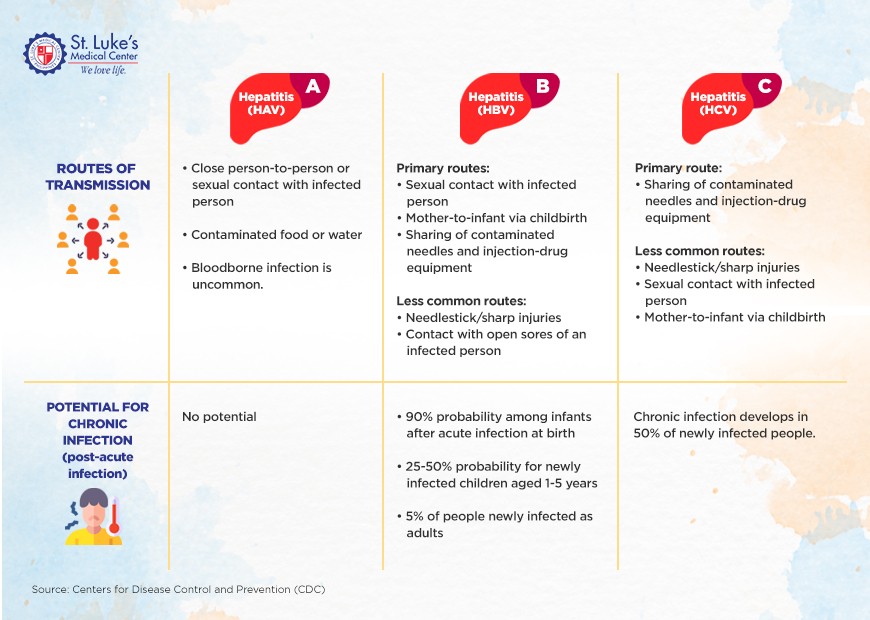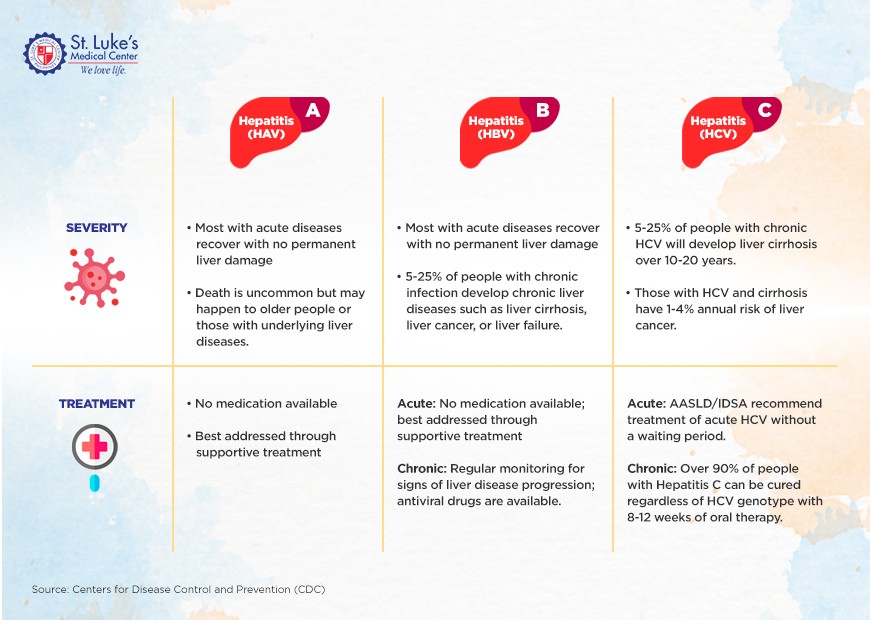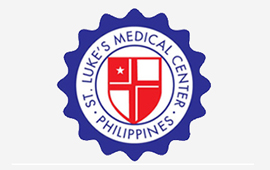Fighting Viral Hepatitis: Understanding Hepatitis Transmission and Prevention
Poor hygiene and unsanitary conditions allow hepatitis A to proliferate because of its transmission via fecal-oral route.
Hepatitis is one of the most prevalent diseases in the world and in the Philippines. With a person dying every 30 seconds from a hepatitis-related illness – even in the current COVID-19 crisis – we can’t wait to act on viral hepatitis. Viral hepatitis is a liver disease that causes inflammation which can worsen if not treated early. At its worst, certain viral hepatitis can lead to liver cancer or liver cirrhosis — a late-stage liver disease that permanently damages the liver through tissue scarring.
Viral hepatitis is caused by several hepatitis viruses. There are three that are most prominent: hepatitis A, B, and C. While all have similarities, the viruses vary in severity and chronic infection progression.
The two most common hepatitis types are hepatitis A and B. Hepatitis A virus (HAV) is transmitted via fecal-oral route, and is typically spread due to unsanitary conditions and poor hygienic habits.
Transmission of HAV occurs when an uninfected person ingests food or water that has been contaminated with the faeces of an infected person. Close person-to-person and sexual contact is also a primary route for HAV. Fortunately, HAV does not progress into chronic infection.
Maintaining proper hygiene and access to sanitary food and water are key in preventing this disease. Hepatitis A also has a vaccine to help people fight against the virus.
 Besides sexual contact, needlestick and sharp injuries are common transmission routes for Hepatitis B.
Besides sexual contact, needlestick and sharp injuries are common transmission routes for Hepatitis B.
These several transmissions make HBV proliferate at an alarming rate, especially since symptoms are not immediately evident. HBV can progress into chronic infection and more serious diseases like liver cirrhosis and liver cancer.
According to the Centers for Disease Control and Prevention (CDC), newborn infants have a 90 percent chance of chronic infection after an acute infection. Newly infected children are also highly susceptible (25-50%) compared to unvaccinated adults (5%).
Similar to HAV, HBV can be prevented through vaccination. Treatment for persons with chronic infections are also available. Gastroenterologists/hepatologists will strictly monitor an infected person for signs of liver disease progression while providing the necessary treatment.

Hepatitis C virus (HCV) is transmitted primarily via blood contact such as sharing of needles and needlestick injuries. It is, however, still possible for sexual activity and childbirth to transmit it. HCV can progress into serious liver diseases. However, it doesn’t have any available vaccine, which makes prevention key.

The different types of viral hepatitis and its transmission routes make it a global health threat up to this day. While HAV and HBV have vaccines already, everyone still needs to be vigilant by being responsible in hygiene, sanitation, and interaction with people.
Early hepatitis screening is an essential step in fighting the disease. Hepatitis usually doesn’t show symptoms, which makes screening crucial. St. Luke’s Medical Center (SLMC) provides hepatitis screening that is convenient and safe for the patient.
Hepatitis screening through a series of blood samples allows SLMC gastroenterologists and hepatologists to detect and assess viral hepatitis. By detecting hepatitis early, doctors can mitigate the virus through treatments that can prevent the disease from transitioning into a chronic illness.
It is important that everyone stays vigilant in defending against viral hepatitis. Proper sanitation, early screening, vaccination and treatment are key in the fight to eliminate viral hepatitis as a public health threat in the future.
For queries on Hepatitis and other liver diseases, please contact the Institute of Digestive and Liver Diseases at 8-789-7700 ext. 2042/2046 (SLMC-Global City) or at 8-723-0101 ext. 5424/4118 (SLMC-Quezon City).






